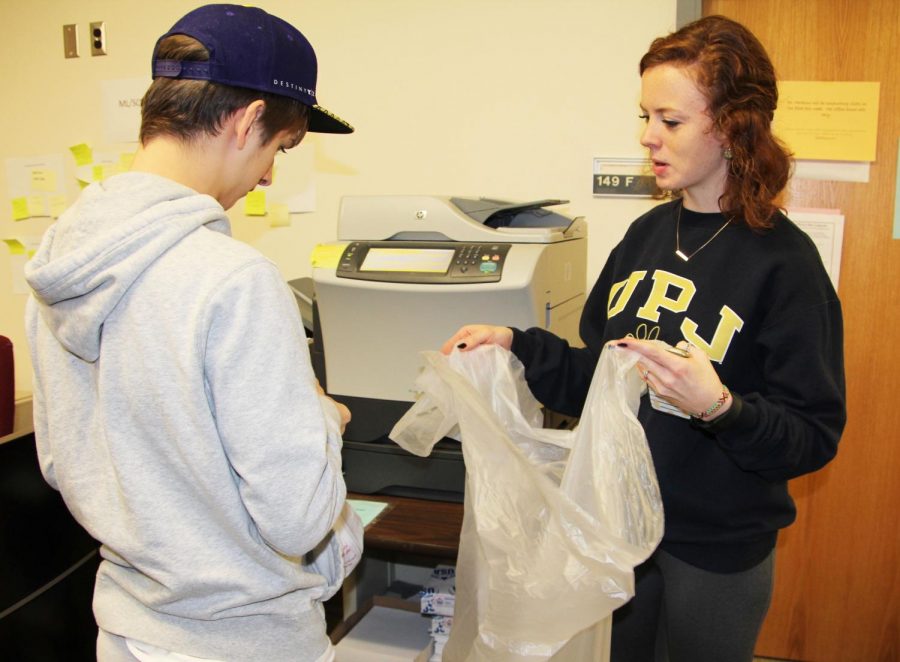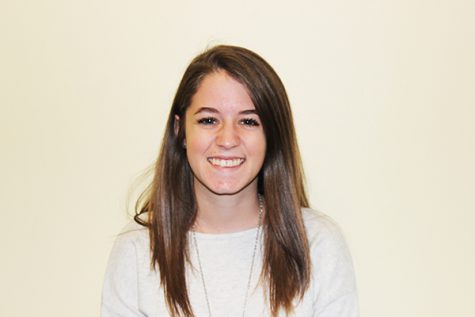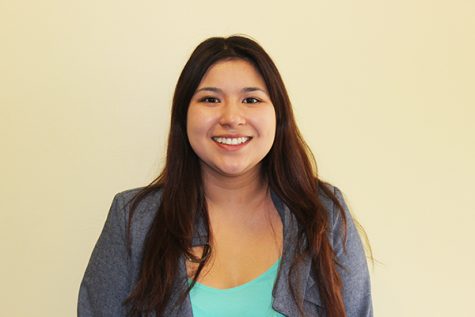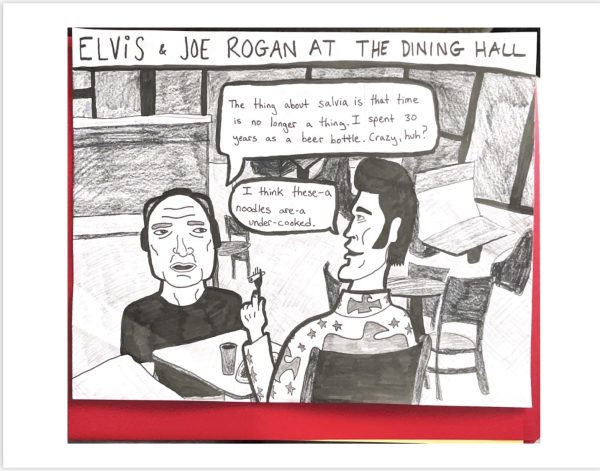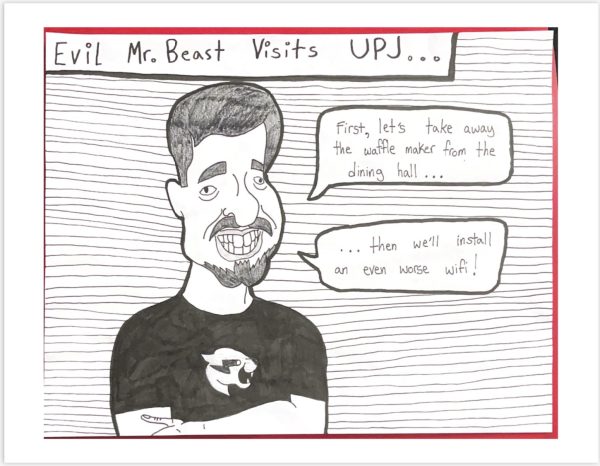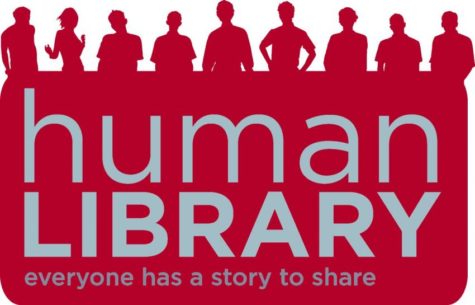Program allows learning exchange
Bridge-transition program student Justin Gorden and Pitt-Johnstown junior Janna Shober collect recycling in Biddle Hall.
December 3, 2017
Each Thursday morning, a few Johnstown area special needs students collect recyclable items from blue bins on campus.
They’re doing more than protecting the environment, however.
These students, who are enrolled in Johnstown’s Appalachia Intermediate Unit 08 Bridge-transition program, also are working on socialization skills.
Pitt-Johnstown assistant education professor Elizabeth Harkins directs this recycling. She connects bridge students with Pitt-Johnstown special education majors.
“This is all about relationship-building. For the bridge students, it’s an opportunity for them to continue to explore their goals. The (Pitt-Johnstown) students are getting hands-on experience that they wouldn’t have had anywhere else,” Harkins said.
In the program, bridge students ages 18 to 21 work with Pitt-Johnstown students to collect recyclable goods from some campus professors, some Blackington Hall offices and the Owen Library.
After they’re done collecting, Harkins said the students get to hang out with each other.
“One time, one student turned 21 and someone baked a cake, and they all had a party on campus. The relationships they build can be pretty amazing,” Harkins said.
Harkins said that she worked for almost a year to get permission to start the program.
“We were looking to figure out ways we could increase community outreach with special-education major students. I worked my first year here figuring out what the rules are with bringing kids on campus and doing a program like this,” Harkins said.
Once she cleared the program with Pitt-Johnstown maintenance directors and Education Division leaders, Harkins said she advertised last fall to begin the program but didn’t get any students to volunteer.
Instead, she started the program in this year’s spring semester as a class project for her students. Harkins said she embeds some of her coursework in the program and that Pitt-Johnstown students also collect data on the bridge students they work with.
The program began with a cohort of 18 Pitt-Johnstown students and eight bridge students and continued this fall with 13 Pitt-Johnstown students and six bridge students.
Pitt-Johnstown senior Mariah Butchko said that she gained hands-on experience from the program.
“I get to work on my teaching techniques and skills to interact with students as well as be exposed to what’s going on in their lives and the different disabilities,” Butchko said.
Alexis Brink, a Pitt-Johnstown senior who also is involved in the program, added that there’s a friendship portion to the program.
“We look at them as peers because we’re the same age,” Brink said.
Brink said she was assigned a bridge student, Jessica Kovalik, who she counts as a friend.
“(Kovalik) loves to talk about things and play games together,” Brink said.
Kovalik said she likes being part of the program.
Bridge teacher Elissa Ferry said that her students look forward to the program and miss it when they can’t go.
“(As teachers), we’re never going to be able to create that kind of socialization in the classroom,” Ferry said.
Both Ferry and Harkins said that the Pitt-Johnstown program is modeled after a similar program at St. Francis University that is an all-day program with multiple activities.
Though both seem to admire what they said was a more full-fledged program at St. Francis, Harkins said that she is looking at ways she can make the Pitt-Johnstown program better.
“We started small, but we’re rolling with it and now we can promote more and have more collaboration,” Harkins said.
Harkins has encouraged anyone intrigued about the program to contact her if they would like to join.

